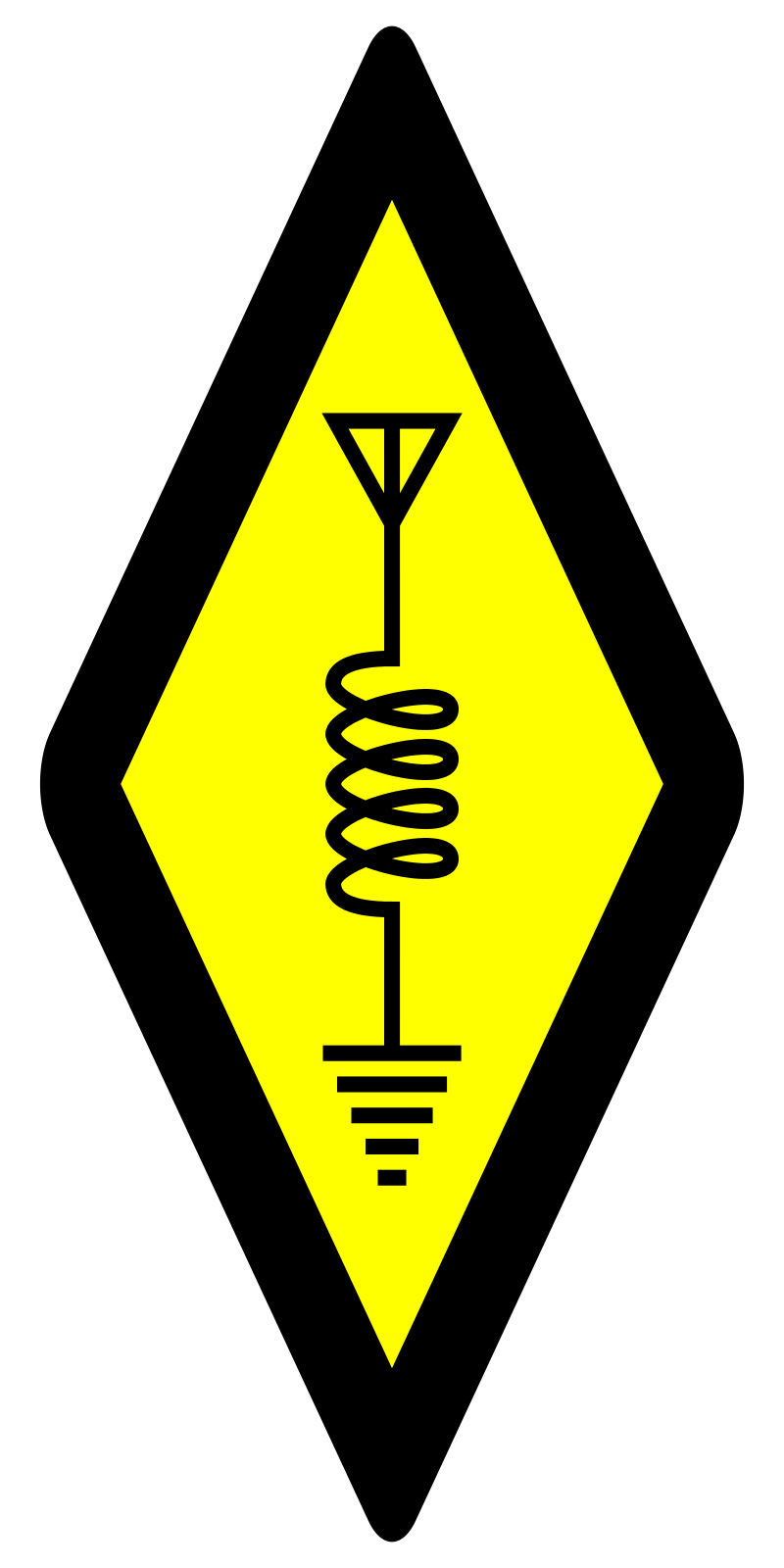

Very tired nerd who loves to yap
Ask me about floppa, Plan 9, computer architecture, computational logic, anything computers really (if you want)
:cat-vibing:
If I don’t reply to you it’s probably cuz I’m too tired, sorry :(
.ije do ka’e tavla mi soi vo’a fo la banjubu’o




Although thinking about all the nuclear takes I am constantly bombarded with online maybe giving folks another medium for self expression isn’t the best idea lol
Tune into Citizen’s Band sometime if your country has one lol, it’s a mess but is entertaining


As long as harmonics are properly filtered
So, those harmonics I mentioned, for the FM broadcast band between 88 MHz and 109 MHz, they’re between 176 MHz and 218 MHz.
Guess what?
They’re allocated to other services, specifically television and digital audio broadcasting.
but I’m not convinced that it would “get folks interested in radio”.
People are put off of amateur radio because so many hams are extremely cop-brained and expect everyone should have to comply to century old rules and norms about how to operate otherwise it’s assumed that you’re just blowing up the spectrum
I am a licensed amateur and the only thing that changed from when I was unlicensed is that the boomers on the FM voice repeaters around me won’t yell at me for interrupting their conversation about their ex-wives or whatever now
Good RF circuitry has never been easier to make/acquire now that we live in the era of semiconductors
low power isn’t a thing. My legal amateur radio beacon uses 10 milliwatts and has been heard 13,945 km (8,665 miles) away.
Yeah and my WiFi router blasting 10 times that barely makes it through a couple of walls
Completely dependent on conditions and equipment
I can guarantee if you power up a “low power FM transmission” that the FCC will come and find you and rain hellfire on you.
Also, lmao, there have been some high-profile cases and they have the PIRATE act now but there’s still lots of pirate FM stations out there lol
Pirate radio is cool and good


Why don’t they just move to El Salvador if they like Bitcoin so much 



That’s really cool, especially people getting their licenses to help their community. Hoping you don’t have to encounter the kind of stuff I have, ever.
The bands are usually dead here too lol… except for the repeaters during the day
I’m hoping maybe the clubs and the hams in my city will be better


Would you lose your license for spreading leftist propaganda?
I’m not sure… as long as you aren’t broadcasting (something like a one-way signal, no communication, it has a specific legal definition but yeh) and are just talking to people it’s not explicitly illegal but you would probably get harassed and maybe have false complaints to government agencies made about you. Also in the US your callsign is associated with your legal name and address so people can come find you 


I’m in  and having my callsign permanently linked to my name and address makes me quite uncomfortable in the era of the internet tbh
and having my callsign permanently linked to my name and address makes me quite uncomfortable in the era of the internet tbh


deleted by creator


We are so back


OpenBSD, RISC-V, and 9front mentioned?

Haven’t listened to BSDNow in a while, but maybe I’ll listen to this episode


You can check to see what drivers were compiled as modules or into your kernel by reading the kernel configuration at /proc/config.gz or /boot/*config*
There might also be out-of-tree (not included with the kernel) drivers installed as packages on your system but this is very rare outside of like… having an NVIDIA card and running the closed-source vendor driver


The vast majority of drivers are included with the Linux kernel now (in tree) so the difference usually comes down to kernel version (newer kernels have more drivers, of course) or kernel configuration set at compile-time (this can be anything from including or not including drivers, to turning driver features on and off, or more fundamental changes beyond drivers)
You can get kernel version info from uname -a and a lot of the time, probably most of the time (this is also down to configuration), you can get kernel configuration info from /proc/config.gz (use gzip -d to decompress) or something like /boot/config
Then you can run diff on configurations of 2 different distro kernels you’re interested in to see how the 2 distribution’s kernels were set up differently
This could also be caused by different setups of userspace tools or UI that interact with these drivers in different, sometimes worse ways but this is usually much less likely in my experience (most Linux distros do things like this the same way these days tbh)
Oh, also, there are a lot of drivers that require vendor-supplied firmware or binary blobs to function and most of the time distros don’t bake these into the kernel (although it is possible) and different distros might have more or less of these blobs available or installed by default or they might be packaged differently. The kernel should print an error message if it can’t find blobs it needs though
I guess there’s kinda a lot to consider lol. Sorry if all of this is obvious
What hardware are you talking about specifically?


Ohh that’s true, I didn’t think about that. It would be difficult to route anything through it unless you were connected directly to it with nothing in-between because no other router would forward packets destined for somewhere else to my machine (except maybe in the extremely unlikely case of source routing?). It seems obvious now lol, thank you!
I’ll write some firewall rules just in case


I see. Our motherboards have different chipsets (I have an X570 in mine). It probably has nothing to do with my issue…
Hoping those kernel parameters fix it. I wish I could help further. PCs are just a bottomless, mostly undocumented rabbithole :(


What motherboard do you have? Also what happens exactly when the lock-ups happen? Have you ever been playing audio when the lock-ups happen and does it loop or stop or keep playing?
I recently had to “fix” (workaround) a similar issue in the OpenBSD kernel with a specific hardware peripheral on my PC (running a 2nd-gen Ryzen), the High Definition Audio controller. For whatever reason (and only when I was running OpenBSD) interrupts from the HDA controller (to let the CPU know to refill audio buffers) would just randomly stop making it to the CPU and audio would loop for a few seconds and then shut off. I spent a long time trying to figure out what causes it and reading Linux driver code but I couldn’t find a cause or why only OpenBSD would trigger it. I ended up having to write kind of a hacky polling mode into the HDA driver. My only guess is some of these AMD-chipset-having motherboards have faulty interrupt controllers.
Maybe there is a similar issue with your system and timer interrupts aren’t making it to your CPU or something. But I’m not really an expert on PC architecture and idek if it even works like that on PCs lol
Sorry for so many questions but do you also have any kernel logs available from when this happens?
I simply do both
It’s not working 
There are some purpose-built ARM Linux laptops available but as an owner of an unused Pinebook Pro… can’t recommend 
Walking the path of a PC hater is not easy
Rip out the fan and connect the processor heatsink to a heatpipe
Then carry around a cup of water to dip the heatpipe into
This is not a bit, I am a real hardware designer